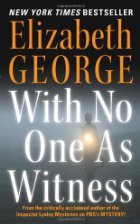 |
| Trade paperback, 186 pages Published 2010 Acquired January 2011 Read May 2012 |
edited by Lynne M. Thomas and Tara O'Shea
Though I was first excited when I first heard of Chicks Dig Time Lords, by the time it came for me to read it, my initial enthusiasm had waned. In the interim, even though the book won the Hugo(!), I'd read several lukewarm reviews from folks whose opinions I trusted, and I'd also read She's Such a Geek!: Women Write About Science, Technology & Other Nerdy Stuff, an anthology with a similar premise-- get women to write about their geeky passions-- that I'd found somewhat repetitive and uninsightful.
Perhaps it was because of these diminished expectations, but I ended up enjoying Chicks Dig Time Lords more than I didn't. Though I think you could level a charge at it that too many essays are about Americans (seriously, do no British women like Doctor Who?) who grew up watching the show on PBS (seriously, where are those flocks of women who came in with the new show?) and love organized fandom (seriously, does no one out there enjoy the actual show for being itself?), the essays themselves are good enough to overcome that. I won't comment on all the essays here, just the somehow-noteworthy ones:
One of the first essays in the book is Carole E. Barrowman's "Time is Relative," which chronicles what it was like growing up as Doctor Who fans with her younger brother-- especially when her younger brother is John Barrowman, who of course went on to play Captain Jack in Doctor Who and Torchwood. Relatively entertaining. Coeditor Lynne Thomas also turns in a good essay about "Marrying Into the TARDIS Tribe," which has some touching Elisabeth Sladen moments in it. (Poor Lis.) Seanan McGuire's confession of love for Adric (who she was convinced was real) was absolutely hilarious.
The best of the personal essays was definitely "Two Generations of Fangirls in Middle America," about Amy Fritsch and her daughter who is growing up on the show. Adorable, and my kids had better like Doctor Who just as much.
I came to Doctor Who Magazine too late for "The Life and Time of Jackie Jenkins" column, about the personal life of a "single white Who fan," but I enjoyed "Being Jackie Jenkins: Memoirs from a Parallel Universe" nonetheless. It's a funny look at the strange period of Doctor Who fandom between 1996 and 2005, when increasingly odd things were required to discuss... but it's relevant to everyone's fandom experience, I expect. I'll probably pick up the book of Jackie Jenkins's collected columns that's recently come out.
I didn't expect to like the essays about fandom activities, but I did: Johanna Mead's "Costuming: More Productive Than Drugs, But Just as Expensive" was actually pretty interesting, even if there are some irrelevant tangents. Even more fun was Jennifer Adams Kelly's "Rutle-ing The Doctor: My Long Life in Doctor Who Fandom," where she talks about making fanvids over the years. I was expecting Tara O'Shea's essay about running the "green room" at ChicagoTARDIS to be very "insider"-- oh ho ho, look at me, how cool am I with my hobnobbing-- but it was actually a very interesting examination of a job I hadn't thought much about. (If you're wondering, my prejudice against organized fandom is simply my prejudice against all groups that I do not belong to.) The only one of these that strongly didn't work for me was Christa Dickson's "In Defense of Smut," which doesn't manage to find anything more interesting to say about smut than, "Well, I like it, so there."
There were also essays that weren't memoir, usually analyzing gender components of the show. Lloyd Rose tackles the "problem of Rose" in "What's a Girl To Do?" and comes the closest of anyone to convincing me that there is a problem of Rose-- though I'm still not convinced. The best of these was definitely "Girl Genius: Nyssa of Traken" by Francesca Coppa, a stirring tribute to an oft-neglected but excellent companion. (Like so many, though, she's shined much brighter after the series than during it; I love her rapport with the fifth Doctor in the audio dramas.)
On the other hand, "Two Steps Forward, One Step Back: Have We Really Come That Far?" by Shoshana Magnet and Robert Smith? is an unconvincing and mean-spirited examination of gender in the new series, more interested in scoring points than saying anything interesting. And though K. Tempest Bradford's "Martha Jones: Fangirl Blues" is well-written and makes some good points, it seems to think that Martha was somehow a successful character in spite of her creators, not because of them.
I also enjoyed the interviews: we get Sophie Aldred (Ace in the 1980s), who is great, but best of all, my first companion love, India Fisher, who played Charley Pollard opposite Paul McGann. My only complaint about these interviews is that there weren't more of them; there have been plenty more interesting women affiliated with Doctor Who over the years. I mean-- Laura Doddington, who played Zara in Key 2 Time!? Who cares? At least get Maggie Stables in!
And, of course, the comic by the creators of "Torchwood Babiez" (Tammy Garrison and Katy Shuttleworth) is every bit as delightful as you'd expect.
There are, as you imagine, some essays that are boring or dull or repetitive, but those simply fade from the mind as you read, leaving you with an interesting and varied set of essays about the experience of being a fan of a marvelous show-- all of which just happen to be written by women. This is perhaps what She's Such a Geek! should have been, and I'm sorry it took me so long to get around to reading it. (But then, I always am.)
















